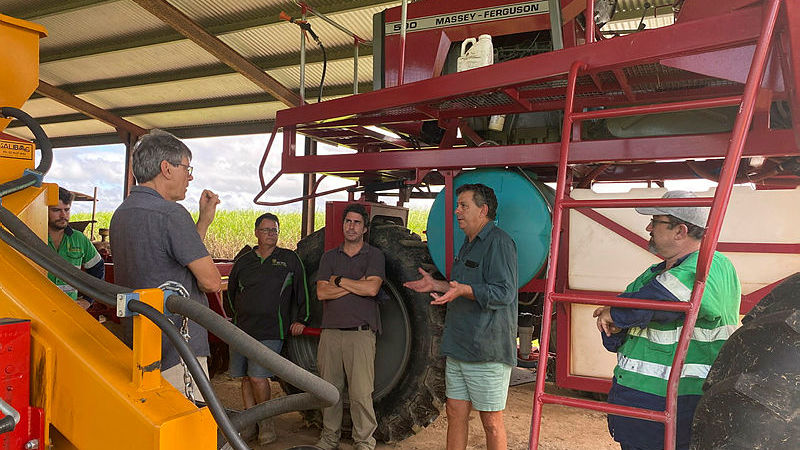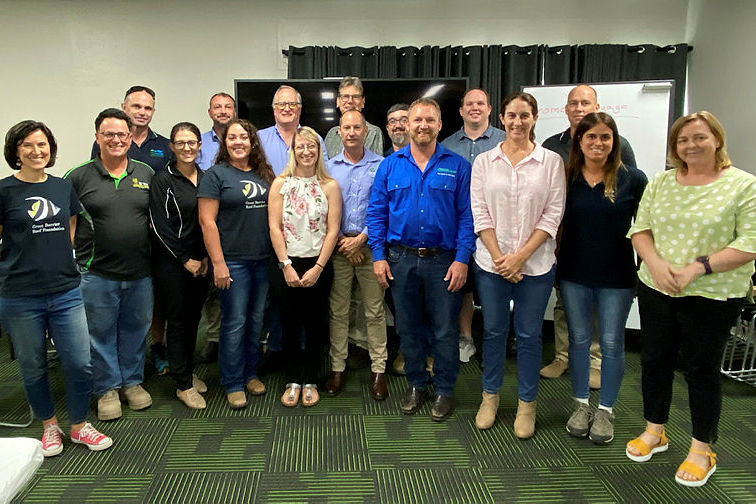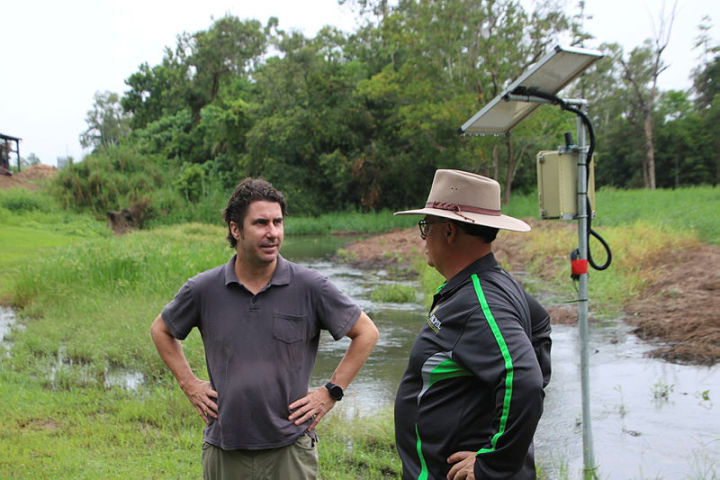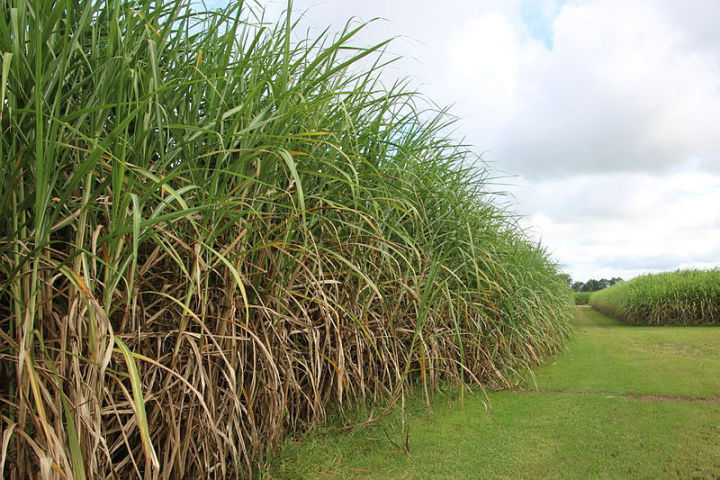Project News ·
On-ground insights drive continuous improvement in the Lower Herbert Water Quality Program
For some, monitoring and evaluation (M&E) may feel like a necessary evil when writing reports, but for our Water Quality team, it’s an invaluable opportunity to reflect, adapt and drive change in our programs.

The process of monitoring and evaluation involves collecting and analysing data to measure progress towards achieving specific goals and objectives. This helps organisations identify what is working and what is not, which in turn informs decisions on how to improve their programs.
At the Great Barrier Reef Foundation, we are keen to ensure we learn from, and collectively optimise, our programs as we go.
The Herbert River is one of the highest priorities under the Reef 2050 plan for reducing runoff of dissolved inorganic nitrogen. Responding to this challenge, the $16.2 million Lower Herbert Water Quality program, funded through the partnership between the Australian Government's Reef Trust and the Great Barrier Reef Foundation, is working with sugarcane farmers to increase understanding of farm management practices that improve productivity, profitability, and sustainability of their farms through six established and trusted local delivery providers.
In early March 2023, the Foundation and its delivery partners in the Lower Herbert reviewed the information collected to date on the Lower Herbert Water Quality Program. Together, the group reflected on how they could guide the program’s adaptation going forward.
Supported by regional coordinator Canegrowers Herbert River, over 26 on-ground staff met in Ingham to celebrate successes, share progress, discuss challenges overcome, learn about monitoring results to date, and provide input into the program’s next phase.

Forum partnership participants. Credit: Jason Wolfgram
The two-day series kicked off with a Partnership Forum that set the scene for collaboration and encouraged open dialogue throughout the week. Delivery providers presented on the progress of their projects so far, lessons learned, and what is coming next. A grower session provided a first-hand grower perspective of participation in the program, its lasting legacies, and potential opportunities for future funding programs.
On the second day, during the M&E Forum, the Foundation's team presented and sought feedback on the findings from the annual evaluation of the Lower Herbert Water Quality Program. The group then collectively considered how this information could help improve this and future programs.
“We wanted to be open and show our local partners what our program evaluation is telling us and give them a chance to sanity check it and explain to us the ‘why’ or ‘why nots’ of what we see. We know the best people to come up with solutions and improvements are the people on the ground, so we created a process for all of us to reflect on how we can collectively improve the program and future programs,” says Milena Gongora, the Foundation's Water Quality Senior Program Manager.
The Forum was followed by 10 farm visits. The project teams and growers shared their experiences in the program with the Foundation. They highlighted management practice changes made as a result of project involvement and provided valuable feedback for future programs.
Following the success of the Forum series, the Foundation's Water Quality team will continue to use M&E to continue to achieve significant, measurable improvement in the health of the Great Barrier Reef.

Chris Dench and HCPSL’s Lawrence Di Bella discuss water quality at an on-farm monitoring site. Credit: GBRF

Stand over cane in the Lower Herbert. Credit: GBRF
#Related

Project News ·
Community at the forefront of Reef water quality protection

Project News ·


